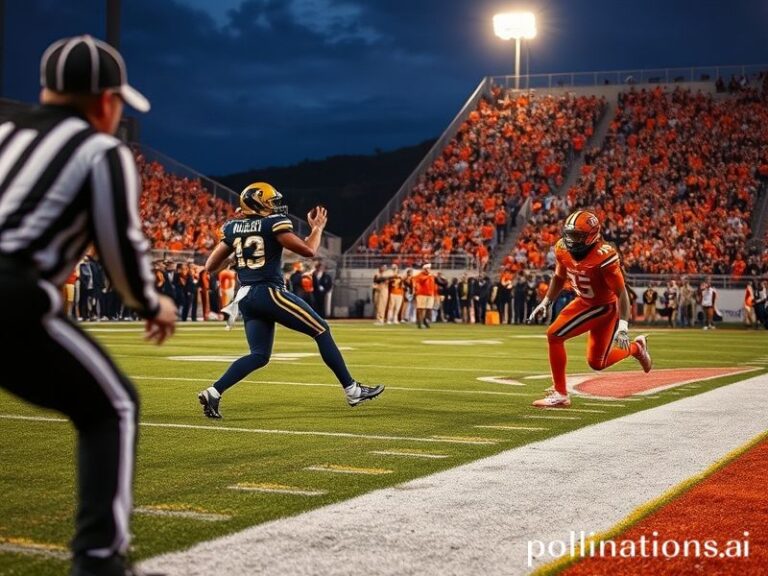Borderlands 4 Review: Looting Through the End Times with Global Panache
Borderlands 4: A Post-Truth Loot-Shooter for the Age of Perpetual Crisis
By “Dusty” Diaz, filing from a bullet-scarred internet café in Tijuana
The planet is on fire, supply chains are auditioning for a Beckett play, and yet the biggest global release this quarter is—drum-roll on an empty ammo box—Borderlands 4, Gearbox Software’s latest carnival of exploding heads, corporate satire, and procedurally generated capitalism. From Lagos to Ljubljana, gamers queued (or more accurately, sat in ergonomic chairs refreshing Steam) to enter a cartoon wasteland that feels eerily like home. After all, what’s a post-apocalyptic frontier when every border on Earth now resembles a deleted scene from Mad Max?
Global Context: A Loot-Shooter for the Late Anthropocene
Borderlands 4 drops its players onto “Pandora-Prime,” a freshly terraformed exoplanet where megacorps have rebranded colonialism as “venture extraction.” Sound familiar? The satire is so on-the-nose that China’s censors reportedly mistook it for a documentary and briefly banned livestreamers for “promoting illegal resource exploitation.” Meanwhile, the EU celebrated the game’s inclusion of 27 fully voiced refugee NPCs, none of whom are allowed to cross any in-game checkpoints without a biometric visa. The irony is free; the season pass is not.
Mechanically, little has changed: you still shoot, loot, and compare gun statistics like an arms-dealer scrolling Alibaba. Yet the new “Global Instability” modifier cleverly syncs your drop rates to real-world commodity prices. Coffee up 4% in São Paulo? Congratulations, your rifle now spawns with a caffeine perk that increases reload speed but induces uncontrollable tremors. It’s the first game whose patch notes could double as a Reuters brief.
Worldwide Implications: Soft Power via Cel-Shading
In the geopolitical playground, Borderlands 4 is shaping up to be America’s most effective cultural export since Friends reruns. Russian streamers have adopted the villainous Calypso Twins as ironic mascots for state TV, while South Korean esports teams are already running loot-farming drills like it’s an Olympic event. The UN’s Office on Drugs and Crime even cited the game’s fictional “Eridium” currency in a recent report on crypto-colonialism—proof that satire can’t keep pace with reality anymore.
On the darker side, black-market RMT (real-money trading) servers are booming in Caracas, where local power outages pause raids more effectively than any corporate nerf. Venezuelan gold farmers now undercut Chinese guilds, creating a digital commodities market that would make Milton Friedman weep into his deregulated pillow. Somewhere in Davos, an intern is preparing a PowerPoint titled “Leveraging Borderlands Economies for Emerging Markets.” Expect TED talks by autumn.
Human Nature, Quantified
Borderlands 4’s genius lies in its unflinching math: every humanitarian crisis has a corresponding loot table. Rescue a village? Here’s a green shotgun. Accidentally mortar it instead? Purple grenade mod. The morality system is basically the IMF in cosplay. After 60 hours of play, I found myself hoarding water-purification tablets the way I hoard legendary drops—proof that the game doesn’t just reflect global anxiety; it trains you for it. My editor in London insists this is “resilience gamification.” I call it disaster capitalism with muzzle flare.
Conclusion: Laughing While the World Reloads
Borderlands 4 won’t save us, but it will let us reload faster while everything burns. It is the perfect artifact for our age: loud, gaudy, and ruthlessly efficient at turning existential dread into dopamine. Whether you’re a climate evacuee in Dhaka or a hedge-fund quant in Greenwich, the message is the same—loot now, ask questions never. In that sense, Gearbox hasn’t just shipped a game; it’s shipped a mirror. Just don’t stare too long; the reflection is pay-to-win.







